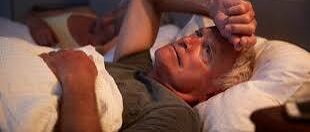Sex addiction, also known as compulsive sexual behaviour, is a growing concern affecting individuals across all age groups, with surprising statistics showing it is not confined to the young.
NHS data reveals that one in five patients treated for this condition is over 70, with pensioners more likely to seek help for sex addiction than those in their 20s.
Over the past decade, nearly 250 individuals have been treated by NHS doctors for health problems linked to excessive sexual drive, including patients in their 80s and even one in their 90s.
Medical records highlight that more than 51 of these cases involved individuals over the age of 70s and 80s, including 1 in their 90s, while just 39 patients were in their 20s.
Last year alone, the average age of sex addiction patients was 55, with only four of them under 30.
Experts attribute this addiction to chemical imbalances in the brain involving dopamine, serotonin, and norepinephrine, which regulate mood and emotions.
Genetic predisposition and early exposure to sexual content, often in dysfunctional environments or abusive circumstances, further contribute to the condition.
“For most of us, sex is a healthy part of life; in some cases, it can take over a person’s life in the same way that drugs do,” says Lee Fernandes, lead therapist at the UKAT Group. “As the act of sex releases an addictive chemical in our brains called dopamine, which can be highly addictive.
Despite its negative consequences, sex addiction is treatable. “The key is recognising the problem and seeking professional support,” emphasises Fernandes.
Treatment doesn’t necessarily mean abstinence but involves strategies to manage the addiction and rebuild healthy relationships.
The Telegraph reported that high-profile cases like those of actor Michael Douglas, comedian Russell Brand, and The X-Files star David Duchovny have helped bring awareness to this often-overlooked condition.
However, with NHS records showing a total of 241 appointments related to sex addiction in the past decade, experts stress the importance of breaking the stigma and providing accessible support for those in need, regardless of age.



